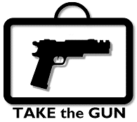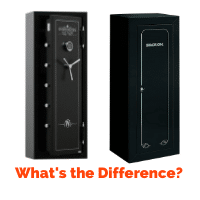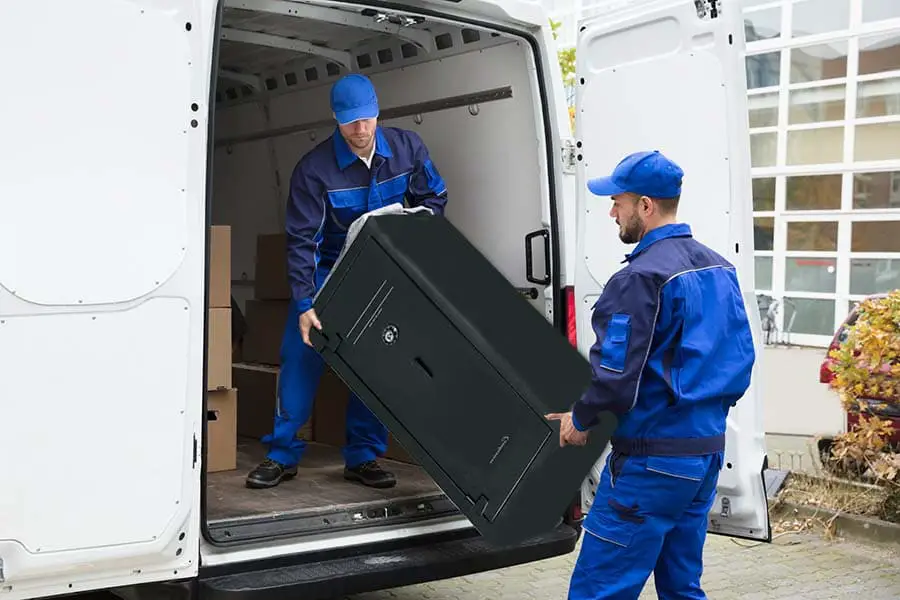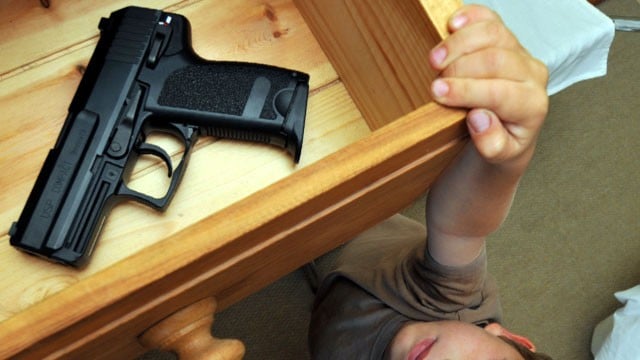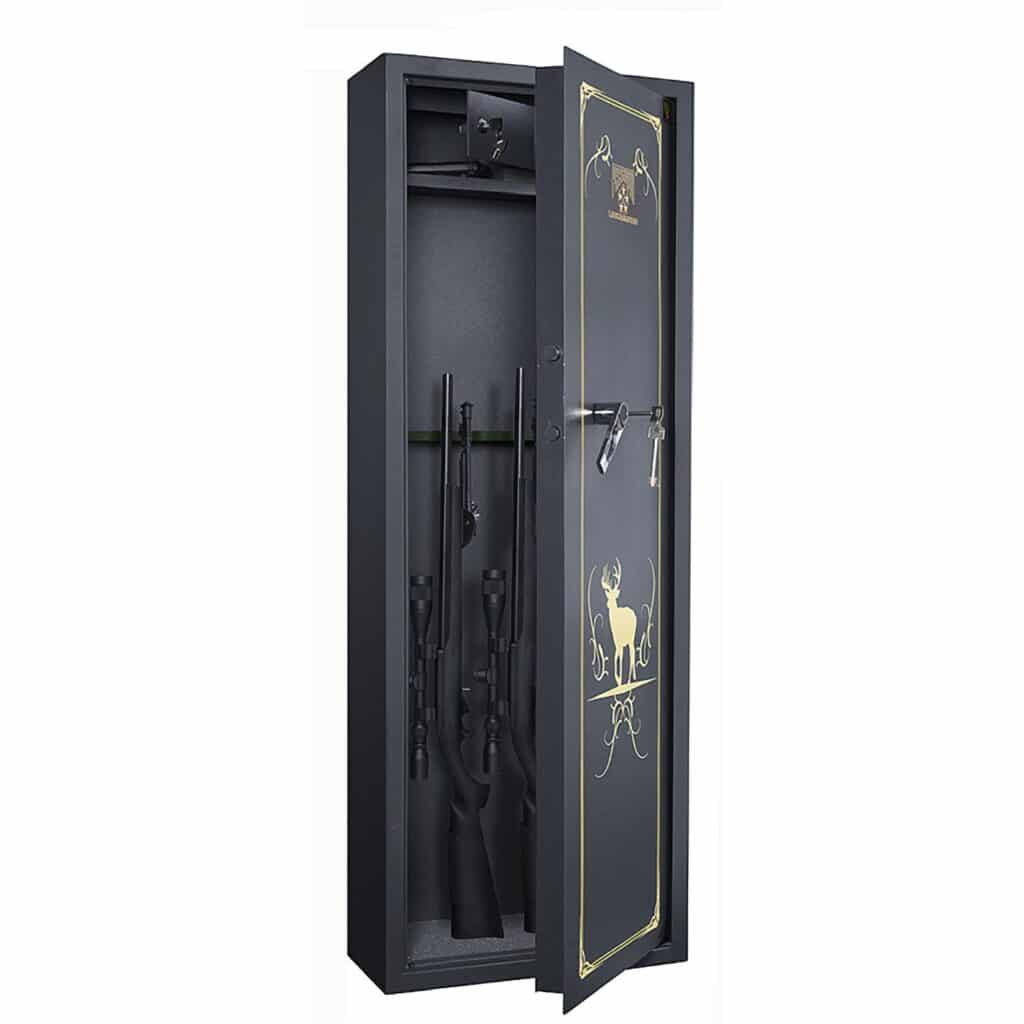The short answer is no. Without proper registration, you would not be able to retrieve the gun after paying back the loan. Below, I will break down processes and consequences for pawning guns in different situations, including how to deal with guns not registered in your name.
Do Pawn Shops Check if Guns are Stolen?
I would not recommend trying to pawn stolen property, including firearms, because the potential ramifications in the future far outweigh the present benefits. Many states have recently passed laws strengthening punishments for selling stolen guns.
Alabama passed a law in 2019 that made receiving a stolen firearm of any capacity a felony rather than a misdemeanor. In 2018, Colorado lawmakers doubled the prison sentence for possessing or receiving stolen firearms. Those convicted can face fines of up to $750,000 and up to 12 years in prison.
Laws vary from state to state, as the above examples show. The typical process for a pawn shop is to keep track of the item’s serial number, often logging it in a database that police officers also have access to. In the past, law enforcement would have to manually check items’ serial numbers against those reported stolen, but the internet made this process much more manageable.
Pawnshops are required by law to keep highly detailed records when it comes to selling second-hand guns. They will need the seller’s identification before purchase and even ask for a fingerprint to keep on file. This is sometimes turned over to the police along with the serial number. The US Patriot Act requires pawnshops to report suspicious activity and abide by many other regulations.
Besides working with law enforcement to keep databases, there are a few other ways pawn shops may sense a red flag. Most will ask about the item’s history of possession before purchasing, and any seller unable to answer these questions might be turned away.
Pawnshops also may be suspicious if the serial number has been tampered with. If the serial number has been removed or filed off, it’s more than likely a pawn shop will be unwilling to take in the firearm.
Be aware that in all cases, pawn shops are interested in cooperating with law enforcement. It’s vital to pawn shops that their business maintains a good reputation in the community, and being known for stolen goods isn’t a great way to boost the customer base or revenue.
Can I Check NICS Myself Before I Pawn a Gun?
If a person wants to buy a gun, wherever they are buying it from must perform a background check. The background check they use is called the National Instant Criminal Background Check System, or NICS.
NICS checks to search the National Crime Information Center (NCIC) records, which contains files that criminal justice agencies have entered. These can include missing persons, stolen property, domestic violence protection orders, or details from criminal histories and the National Sex Offender Registry.
It also searches the Interstate Identification Index and the NICS Index. The Interstate Identification Index helps transfer information about a criminal, including fingerprints and criminal history records, between state lines.
The NICS Index contains other factors prohibiting gun ownership not already covered in the other databases, like not being a legal citizen or having a history of mental health issues. All of these databases are maintained by the FBI.
Since these are federal files with personal information on millions of Americans, you can’t do a background check on yourself. You could only have a NICS check done by purchasing a gun from a licensed dealer, who will then contact the FBI with the relevant information. However, if the FBI does not respond to the background check within three business days, the sale may go through by default according to law.
It is less likely that a pawn shop would run a background check if you were pawning a gun than if you were purchasing one. It is crucial to keep in mind that if you wanted to retrieve the firearm later, you would need to pass the NICS check.
If a pawn shop runs a NICS check that comes back with a match, they are required to contact authorities within two days and are not allowed to return the firearm.
Can a Convicted Felon Pawn a Gun?
The short answer is yes. A convicted felon can typically pawn a gun. But before doing so, you would need to weigh all the ramifications seriously. Convicted felons are not allowed to possess or even be around firearms typically. You also have to be 18 years old to pawn a rifle and 21 years old to pawn a pistol.
If the pawnshop does run a NICS check, which is more and more likely as gun control laws gain traction, it will come back with a match and you would face all the legal punishments according to whatever state you are in.
You would also not be allowed to retrieve the gun. While pawn shops only need a valid form of identification to accept a pawned weapon, getting it back is more complicated and could even get you into some legal trouble. As I outlined above, pawnshops are required to run a NICS check.
That means if you have any previous felonies on file, the FBI will notify the pawnshop and law enforcement of them and the fact that they were previously in possession of a firearm. This can quickly lead to further punishments, including jail time or significant fines.
I strongly advise against attempting to lie or obscure the truth on any official forms. The FBI has access to all criminal records and databases, and it will catch up with you eventually. Trying to pull a stunt like this even left one man with almost a year of jail time followed by years of supervised release.
One of the few exceptions to NICS checks is gun owners of Alabama, with a pistol permit issued after August 1, 2013, from a sheriff’s department within the state. If you have been given one of these, you are not subject to a background check and can retrieve your weapon. It is important to note that the pistol permit must still be valid to bypass the background check process.
Can I Pawn a Gun Purchased in a Private Sale?
Yes, you can pawn a gun purchased in a private sale. If your state requires it, make sure the gun is registered to you beforehand so you can retain ownership after retrieving it from the pawnshop.
If your state doesn’t require gun registration, you can treat it like any other gun purchase. Make sure to bring all the necessary paperwork with you when you take it to the pawnshop to ensure ease of exchange.
Make sure private gun sales are legal in your state. Gun control laws vary wildly throughout the country, and what is acceptable in one state may be very illegal the next one over. If you have a gun that you purchased in a private sale in one state, it can get you in serious trouble to sell it in a pawn shop in a different state that does not allow private sales.
As always, make sure to do your research before choosing a pawn shop. Most will let you know whether or not they accept guns that have been purchased in a private sale, as long as you have the paperwork to prove you own it.
Should You Register a Gun Before You Pawn It?
Yes, I always register guns before pawning or selling them. If I haven’t registered the firearm, there is no way for the pawnshop to tell if the gun is my property or if it has been stolen. I would not be able to retrieve the gun after pawning it if it isn’t registered in my name.
Remember: if the gun is not registered in your name, you cannot sell the weapon or retrieve it after pawning it. This is also applicable to firearms that have been passed down or given as gifts. I always make sure to obtain the original paperwork and have registration transferred after receiving a firearm as a gift.
Quick Reference on How to Pawn a Gun
Below, I will touch on some frequently asked questions when it comes to pawning firearms. The best thing to do beforehand is constantly checking your state’s laws on possession of and selling guns to make sure you do so legally and ethically. This one step will prevent a considerable amount of stress and potential legal ramifications.
What does it mean to pawn a gun?
Pawning a gun is a lot different than pawning baseball cards or a necklace. Only registered pawnshops can buy, pawn, and sell firearms, and they need a good deal of paperwork and legal processing to make sure the operation is legitimate.
Still, the central concept of pawning is the same. You bring the gun to a pawn shop, and the pawnbroker will offer you a loan while holding the gun as collateral. If you are unable to pay the loan back within the allotted amount of time, the pawnshop will keep the weapon and may sell it or do with it what they please — it is now their property. You can still buy back the gun later if it is available.
Remember that pawning something is different than selling it. Pawning is a form of loan-giving, and you would still technically be the owner of the gun once you repay it. There are also interest fees that build up over time on top of the loan. If you are more interested in selling the gun outright, you can bring it to the pawnshop and officially transfer ownership to them.
How should I prepare my gun to be pawned?
Make sure the gun is unloaded. Keep the ammo far away; I would not bring it to the pawnshop with you at all. Make sure any ammunition is removed from both the magazine and the chamber. Remember that felony convictions mean you should not have ammunition.
It’s wise to bring the gun in a secure carrying case. When removing the gun from its case, I always make sure to point the barrel in a safe direction away from any people. I frequently remind myself of this adage: it’s always better to treat any gun like it’s loaded.
How do I know which pawnshop to use?
I always do my research before pawning anything, especially a gun. It’s essential to check with the pawnshop you’re planning on using and make sure they have the proper licenses and regulations for the type of gun you want to pawn. Laws are different by city, county, and state, and some pawn shops may not be able to take specific models.
An easy way to make sure you can pawn your gun to a certain pawnshop is by looking at the pawn shop’s catalog for firearms similar to your own. That way, you’ll also be able to get a good gist of what kind of loans they offer by looking at the prices.
For any pawn shop to buy a gun, it must have a Federal Firearms License. Pawnshops without this license cannot legally buy, pawn, or sell guns.
What documents should I bring with me?
You will need a valid form of identification and, most likely, your gun owner’s license. It can also be helpful to bring a pistol permit if you have one. Make sure the gun is registered in your name and that your current address is listed on your driver’s license or state ID.
If the gun is not registered in your name, you won’t be able to sell it or collect it after repaying the pawnbroker’s loan.
